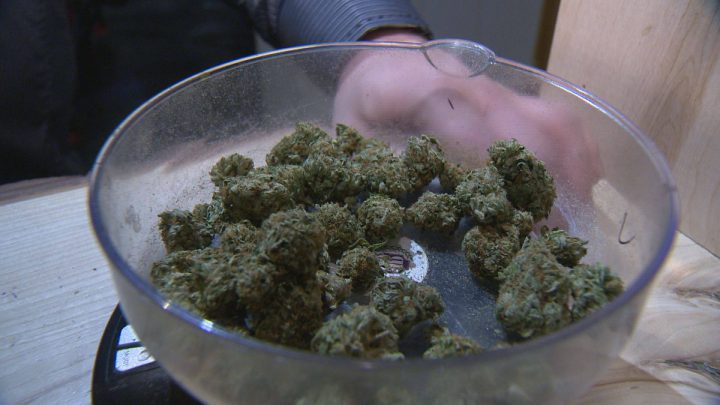Smoking marijuana in Canada will be legal come next July, but as to how the rules will be enforced, Saskatchewan’s Justice Ministry has concerns.

The province is in the process of reviewing the legislation but many of the details and components are not yet clear.
READ MORE: Pot legalization: Seven questions that still need to be answered
In a statement, the government said:
“Although we are pleased the federal government will allow provinces to determine the minimum age of consumption, we are concerned that the lack of consistency across provinces could be problematic.”
The province also adding they expect the federal government will provide funding where it’s required.
READ MORE: Saskatchewan still has questions about future marijuana legalization
Prior to the legislation being tabled, Justice Minister Gordon Wyant expressed concerns about proper training for police officers to detect impairment.
Wyant said public safety is his biggest concern, and the costs of training officers to recognize those signs is high.
“You can smell alcohol on someone’s breath, I think, and I’m not sure you can do that same thing with marijuana. We need to look at our legislation and make sure we have the right tools in place,” Wyant said Thursday.

Get daily National news
READ MORE: How will marijuana be taxed? Legalization bill doesn’t say
It’s a concern echoed by Chief Evan Bray of the Regina Police Service. Bray said detecting impaired drivers will require additional training – something that isn’t offered yet in Canada.
“We need an increased ability to train expert officers, because most of our officers, while they can recognize signs of impairment, there’s some specialized training that’s involved in drug recognition,” Bray said.
“That training right now, requires us to send officers, believe it or not, deep into the United States to receive that training.”
He said they’re calling on the federal government to bring that specialized drug detection training to Canada.
“It’s going to be a capacity issue for the training in police colleges, and for us as services, it’s going to come down to a budget issue. How do we get these officers trained?” he questioned.
The new law will allow adults 18 and older to possess or share 30 grams of cannabis.
Patrick Warnecke of Regina’s Best Buds’ Society said it’s about time the government moved forward with legalizing marijuana.
“It’s about time they come to a conclusion on this. The war on drugs has failed as far as cannabis goes,” Warnecke said.
However, he’s opposed to the 30 gram limit, saying it’s not a fair limit.
“The fact is, anyone can walk into a liquor store or offsale and purchase as much beer as they want. What if a person is going on vacation or going camping for a couple of weeks. I think restricting that is pretty simplistic,” he said.
READ MORE: Federal legislation on legalizing marijuana unveiled
Provinces would also be able to establish their own rules regarding licensing and distribution.
Warnecke said he hopes Saskatchewan will do this properly.
“As the industry develops, we can’t be left behind because there’s a huge economic spinoff that can really benefit us here in Saskatchewan, including employment and businesses setting up here,” Warnecke said.



Comments
Want to discuss? Please read our Commenting Policy first.